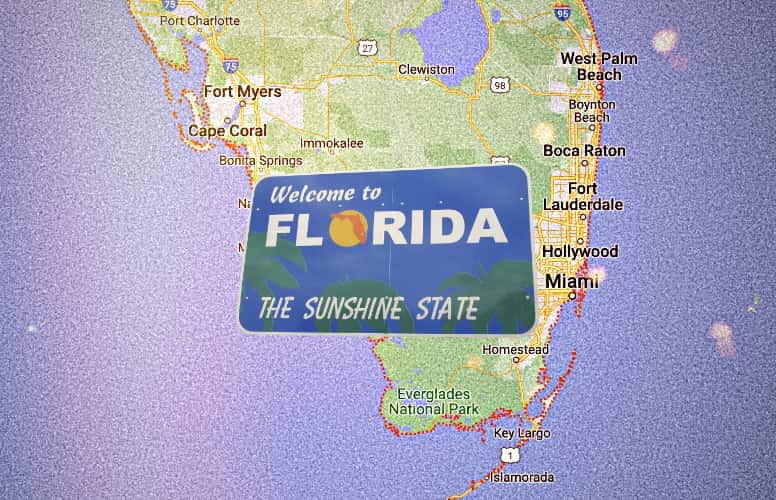AAA Insurance to use non-renewals to manage Florida cat exposure

The latest news of a primary insurance carrier pulling-back from its exposure in a catastrophe-exposed US state comes courtesy of media reports on AAA Insurance, which is reportedly set to cull certain policies from its portfolio through non-renewals, as it seems to manage its exposure in Florida.
AAA Insurance in Florida is part of the Auto Club Group and provides auto, homeowners and bundled policies in the state.
Media reports state that the company is the latest to seek to pull-back and that is has cited catastrophe exposure as a reason for the move.
Reports quote AAA as saying that 2022’s “catastrophic hurricane season contributed to an unprecedented rise in reinsurance rates, making it more costly for insurance companies to operate,” in the state of Florida.
Adding that, “We are encouraged by the statutory changes that have recently taken effect and believe they will provide positive results.
“Those improvements will take some time to fully materialize and until they do, AAA, like all other providers in the state, are forced to make tough decisions to manage risk and catastrophe exposure.”
AAA is not exiting Florida, rather they are set to non-renew certain policies as they reach their terms, the company has been quick to clarify.
It’s said to be a small percentage of AAA’s overall book and the company said that it continues to actively write new policies and that it will continue to grow its policy count year-over-year.
Customers took to social media to claim that the policies that are retained are now facing significant rate hikes as well.
AAA said in a release, “This decision is one we do not take lightly, yet it’s a necessary one to reaffirm our commitment to the state and those we insure. We acknowledge that this is a difficult time for those affected. AAA insurance agents are willing and able to help them find alternate coverage.”
AAA’s move is just the latest in a string of insurers leaving or pulling-back in states such as Florida and California.
What these moves have in common is a desire to manage risk better, in a time when doing so through reinsurance is more expensive.
But it’s not just the reinsurance costs, it’s also the litigation related challenges and inflationary effects, both costs and social inflation.
In recent months Bankers Insurance and AIG subsidiary Lexington Insurance pulled-back in Florida, while Allstate had paused underwriting new homeowners, apartment and commercial property insurance in California in late 2022, and AIG and Chubb are also reported to have pulled-back on high-value property risks in California.
More recently, State Farm said it was exiting the California property insurance market, ceasing to write business and personal P&C property as it cites exposure growth, rising catastrophe risks and reinsurance market challenges as reasons for the move.
Then Farmers Insurance announced it is easing-back somewhat from writing property business in California, saying it will cap the number of new policies written each month now.
Farmers then announced a pull-back from Florida, with the carrier set to stop writing new Farmers-branded auto, home, and umbrella policies in the state, as the company looks to manage its exposure there.
We’ve also had Nationwide pulling-back and also planning to re-underwrite some property business.
As we’ve said before, insurance carriers are losing confidence in their ability to charge risk-commensurate rates that can cover all of their costs, in every region they operate.
So moves to manage exposure more closely are no surprise, and given the cost of reinsurance has risen so much these moves could become more frequent, as insurers look to manage their books more profitably using whatever tools they can.
Florida of course is perhaps the most challenged insurance market still and faces perhaps the highest reinsurance prices.
But, the risk remains attractive to the reinsurance and insurance-linked securities (ILS) market, as evidenced by Citizens recent renewals and our news earlier today on the progress being made under Citizens depopulation program.
However, that’s not at any price. It’s at a price where reinsurance capital feels it is being compensated well enough to bear the risk over the long-term and make a profit in the majority of years.
Primary carriers need to do the same and you only have to look at the statistics on primary insurer performance in Florida over the last 6 or so years to realise that something must change.
The question now is what this does to Citizens, at a time when it wants to depopulate itself, but looks set to have perhaps as much inflow of new policies as it does outflow through take-outs.






